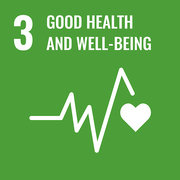
Children and lockdown: too much screen time increased sleep disorders
Restrictions adopted to combat the Covid-19 pandemic have drastically increased exposure to electronic devices in minors, leading to a sharp increase in sleep disorders. That is the finding of a study conducted on more than 1,000 children and adolescents and coordinated by Bambino Gesù Children's Hospital together with Sapienza University of Rome and the University of Tor Vergata. The results were published in the journal Sleep Medicine.
The study was carried out by administering 1,209 questionnaires to parents of children and teenagers aged between 2 and 18 between April and June 2021. Of these, 1084 were actually used, after discarding those that were only partially filled out. The questionnaire was divided into several parts: the personal data questionnaire, the health status one, the questionnaire on the use of electronic devices before and during the pandemic, and the specific questionnaire to assess sleep disturbances (Sleep Disturbance Scale for Children).
The cohort, consisting of a large population of healthy children and teenagers aged between 2 and 18, comprised 569 males and 515 females. Of the 1,084 children and teenagers, 6.3 per cent attended nursery school, 23.5 per cent preschool, 39.7 per cent primary school, 15.9 per cent junior high school, 12.9 per cent high school and 1.7 per cent were not yet in school.
The study found that the increase in screen time affected 68.7% of children and young people compared to the pre-pandemic period. Specifically, exposure time more than tripled for school purposes (from just under an hour a day to three and a half hours) and affected 72% of children and young people. Whereas recreational use almost doubled (from one hour and 45 minutes to three hours) and affected 49.7% of the subjects.
Considering only the evening hours (after 6 p.m.), increased screen time was observed in 30% of the sample (325 children). That rose from just 13.7% of children and young people spending more than two hours in front of screens before Covid to 29.1% (more than double). This is particularly significant given that the factors most associated with the risk of sleep disturbance are precisely those related to time spent in front of a screen in the evening hours.
The study aimed to verify the increased use of electronic devices during the pandemic by studying their effects on children's sleep. To assess the presence or absence of sleep disorders, the Sleep Disturbance Scale for Children was used, a special questionnaire consisting of 26 questions to assess sleep habits in children and adolescents. Questions include sleep duration, difficulty falling asleep and waking up, how often children wake up during the night, and state of agitation during sleep, along with others.
The study conducted by the doctors of Developmental Neurology and researchers of Neurological and Neurosurgical Diseases of the Bambino Gesù Children's Hospital, together with Sapienza University of Rome and the University of Tor Vergata, showed an increase of over 50% in sleep disorders compared to the pre-pandemic period. In detail, they went from 240 children and adolescents already showing sleep disorders before the pandemic to 367 during the pandemic: 33.9% of the entire sample, practically one in three children.
Data from the study showed a correlation between increased use of electronic devices during Covid and increased sleep disorders. Another very important element is that the lifestyles of children and teenagers have changed profoundly: electronic devices are now part of their lives, both school and social, and this persists even now that we are a long way from the pandemic closures. All this only underlines the importance of sleep hygiene recommendations, which should always be considered as the first line of treatment to promote good sleep behaviour in childhood and adolescence. Especially since sleep in this age group is crucial for improving learning, cognitive, school and even social skills.
References:
Screen exposure and sleep: How the COVID-19 pandemic influenced children and adolescents – A questionnaire-based study - Romina Moavero, Valentina Di Micco, Giusy Forte, Alessandra Voci, Luigi Mazzone, Massimiliano Valeriani, Leonardo Emberti Gialloreti, Oliviero Bruni – Sleep Medicine (2023) https://doi.org/10.1016/j.sleep.2023.04.009
Further Information
Oliviero Bruni
Department of Psychology of Development and Socialisation Processes
oliviero.bruni@uniroma1.it
